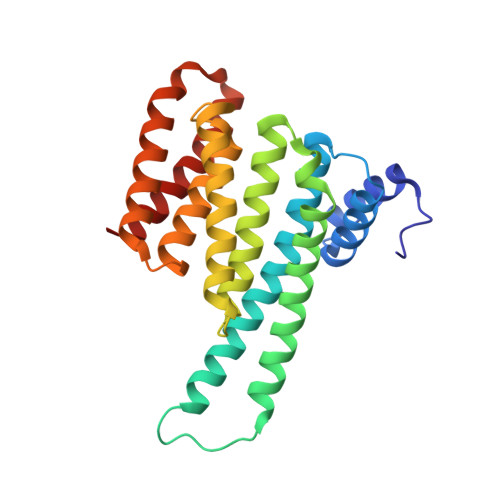Site-Directed Fragment-Based Screening for the Discovery of Protein-Protein Interaction Stabilizers.
Sijbesma, E., Hallenbeck, K.K., Leysen, S., de Vink, P.J., Skora, L., Jahnke, W., Brunsveld, L., Arkin, M.R., Ottmann, C.(2019) J Am Chem Soc 141: 3524-3531
- PubMed: 30707565
- DOI: https://doi.org/10.1021/jacs.8b11658
- Primary Citation of Related Structures:
6HHP, 6HKB, 6HKF, 6HMT, 6HMU, 6HN2 - PubMed Abstract:
Modulation of protein-protein interactions (PPIs) by small molecules has emerged as a valuable approach in drug discovery. Compared to direct inhibition, PPI stabilization is vastly underexplored but has strong advantages, including the ability to gain selectivity by targeting an interface formed only upon association of proteins. Here, we present the application of a site-directed screening technique based on disulfide trapping (tethering) to select for fragments that enhance the affinity between protein partners. We target the phosphorylation-dependent interaction between the hub protein 14-3-3σ and a peptide derived from Estrogen Receptor α (ERα), an important breast cancer target that is negatively regulated by 14-3-3σ. We identify orthosteric stabilizers that increase 14-3-3/ERα affinity up to 40-fold and propose the mechanism of stabilization based on X-ray crystal structures. These fragments already display partial selectivity toward ERα-like motifs over other representative 14-3-3 clients. This first of its kind study illustrates the potential of the tethering approach to overcome the hurdles in systematic PPI stabilizer discovery.
Organizational Affiliation:
Laboratory of Chemical Biology, Department of Biomedical Engineering and Institute for Complex Molecular Systems (ICMS) , Eindhoven University of Technology , 5600 MB Eindhoven , The Netherlands.


















